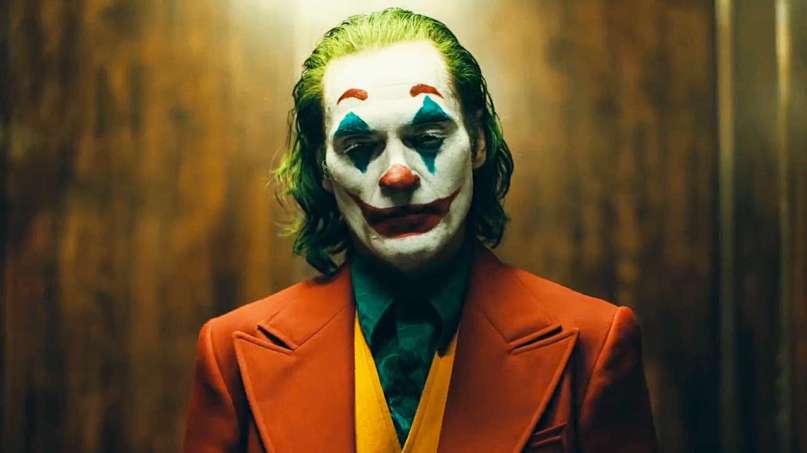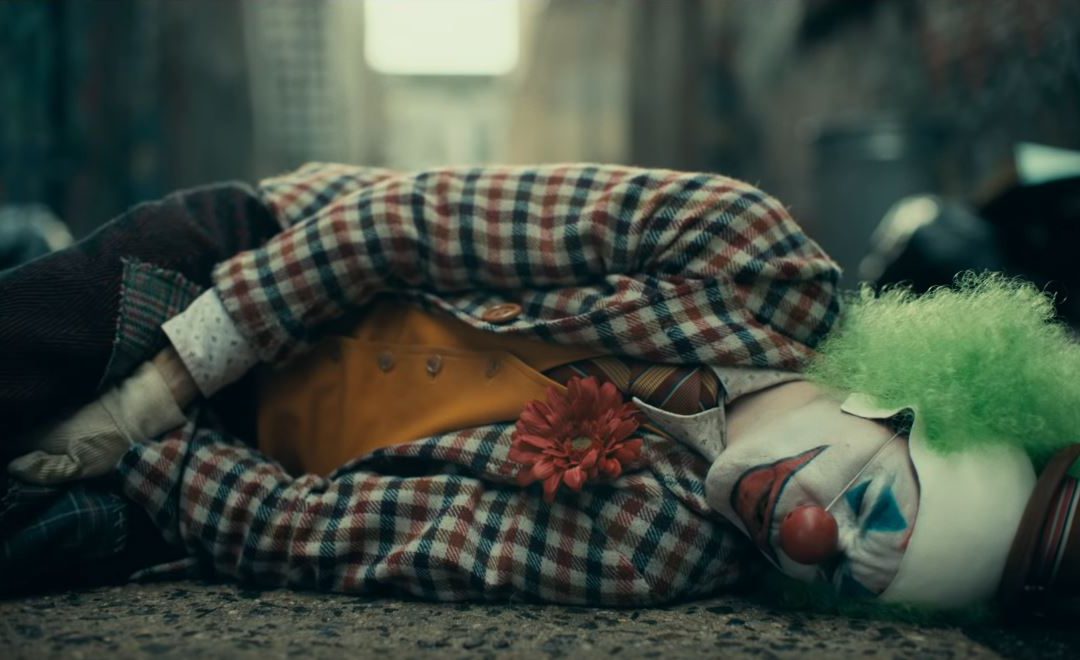Over the years James Bond, Sherlock Holmes, and Dr. Who have become the most portrayed characters on the silver screen, with more than a handful of spin offs and reboots to their respective titles. Considering this treatment, I would argue that a character has reached iconic status if and when they transcend their own film and the culture automatically assigns movie ownership to the character in question. For example, you don’t go to see a Pirates of The Caribbean Film, you go to see a Jack Sparrow (Johnny Depp) Film. Such a conversation lends itself to the increasing performances of the Batman super villain Joker, most recently portrayed by Joaquin Phoenix in the 2019 film Joker. Directed by Todd Phillips (The Hangover, Old School), Joker is a character study/origin story that attempts to give probable reason for how a man might become a murderous clown with the sole incentive of societal disruption. Through the meaningful cinematography, gob smacking performance by Joaquin Phoenix, or the highly relevant themes of mental health, Joker succeeds on multiple accounts.

Joaquin Phoenix as the Joker.
The transformation from Arthur Fleck to the Joker comes about by slow deterioration of a man, whom has become alienated by his own society. Looking at the cinematography alone, we can see how themes of being alone or disconnected are reinforced through extremely shallow depth of field. Specifically, when Arthur is alone or not interacting with other characters, he is isolated within the small plane of focus. For instance on the subway sitting alone or in the opening shot as he applies his clown makeup. The shallow depth of field focusing on his face helps the audience notice his expressions and minuet mannerisms that signify his mental state.
With talks of an Oscar nomination already, it would be impossible to discuss Joker without mentioning the performance of Joaquin Phoenix. The movie makes it quite obvious that Arthur Fleck is a mentally unhealthy individual, which is relayed through his many traits and behaviors. We see Arthur run, dance, and smoke in ways that relay this theme of societal abandonment. When he runs, he does so with a hint of throwing caution to the wind, like someone who can’t hold it in any longer. The way he dances, like nobody is watching, and almost in a dreamlike moment of bliss. The way he smokes shows his dependency and comfortability with the practice, as he does it in almost every scene. The theme and essence of joker is captured perfectly through the performance by Phoenix, and he nails the details that make the performance become believable.
Lastly, I think the film approaches a highly relevant topic of mental health, and the role that society plays into that. The character of Arthur Fleck is mentally ill from genetics, but his condition is worsened by the city of Gotham. They provide minimal therapeutic treatment and torment him to the point of a mental break. Without going into spoilers, I think the film implies that societies and certain cultures create their own villains, in the way that Joker is created in this film. It sparks an important discussion about our own society and if our own culture is to be blamed for the mass shootings or acts of violence. Overall the film is at its best when we’re focused on Joker but it does include one too many scenes that try to remind you that Batman exists in this universe. After watching I don’t feel these scenes were necessary but they certainly don’t detract from the focused and highly proficient work we see in Joker.
Joker, at this years Academy Awards, was nominated for eleven Oscars, and walked away with two as the Awards came to a close. Joker won the Oscar for Best Actor and the Oscar for Best Original Music Score.
Star Review
![]()


Trackbacks/Pingbacks